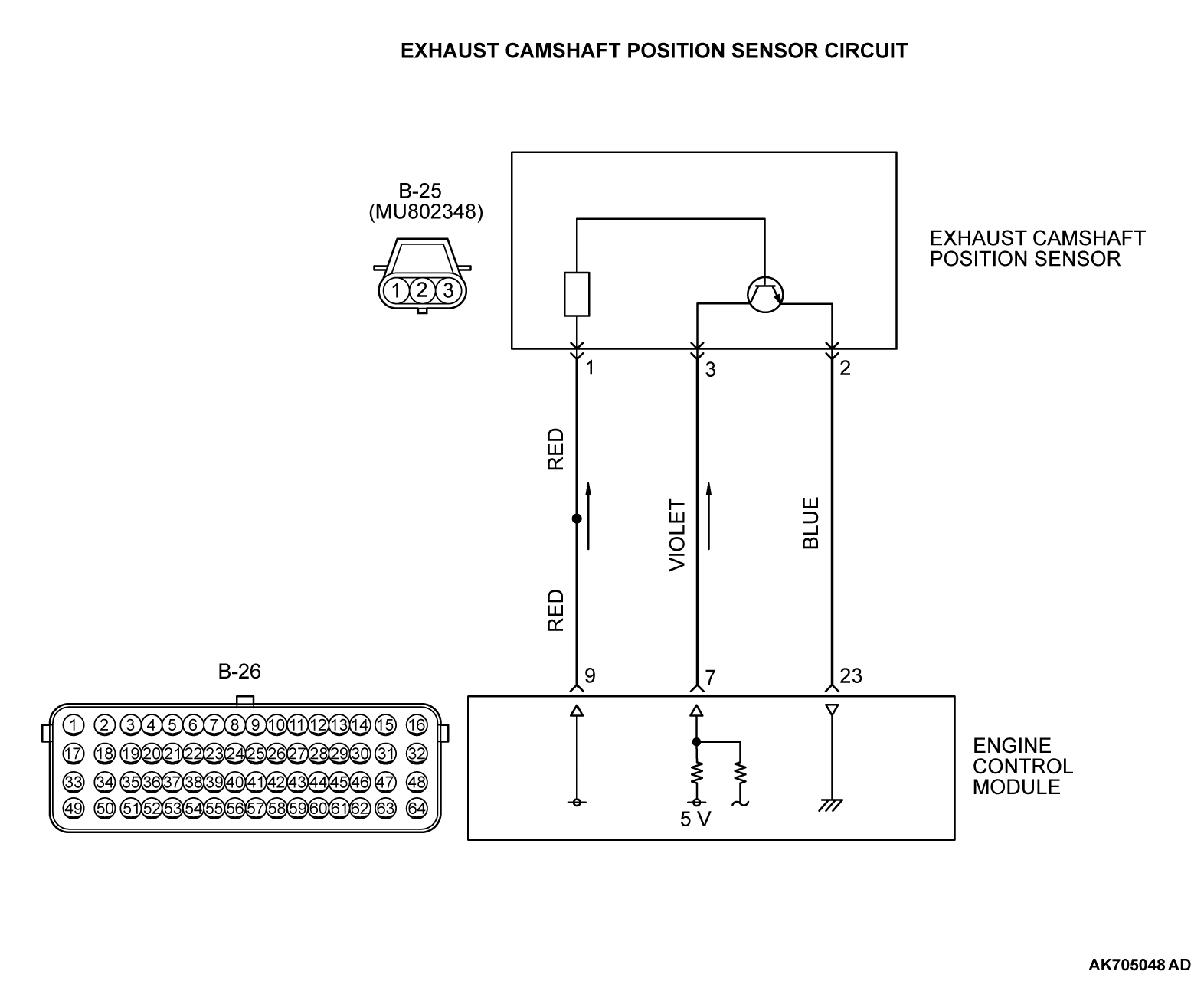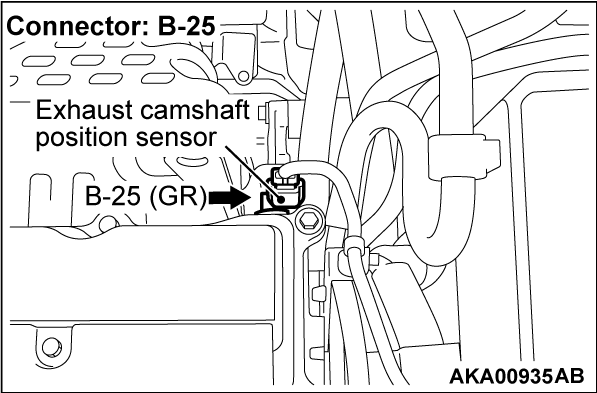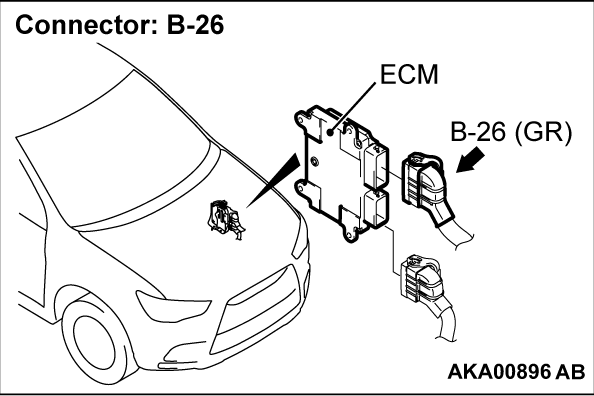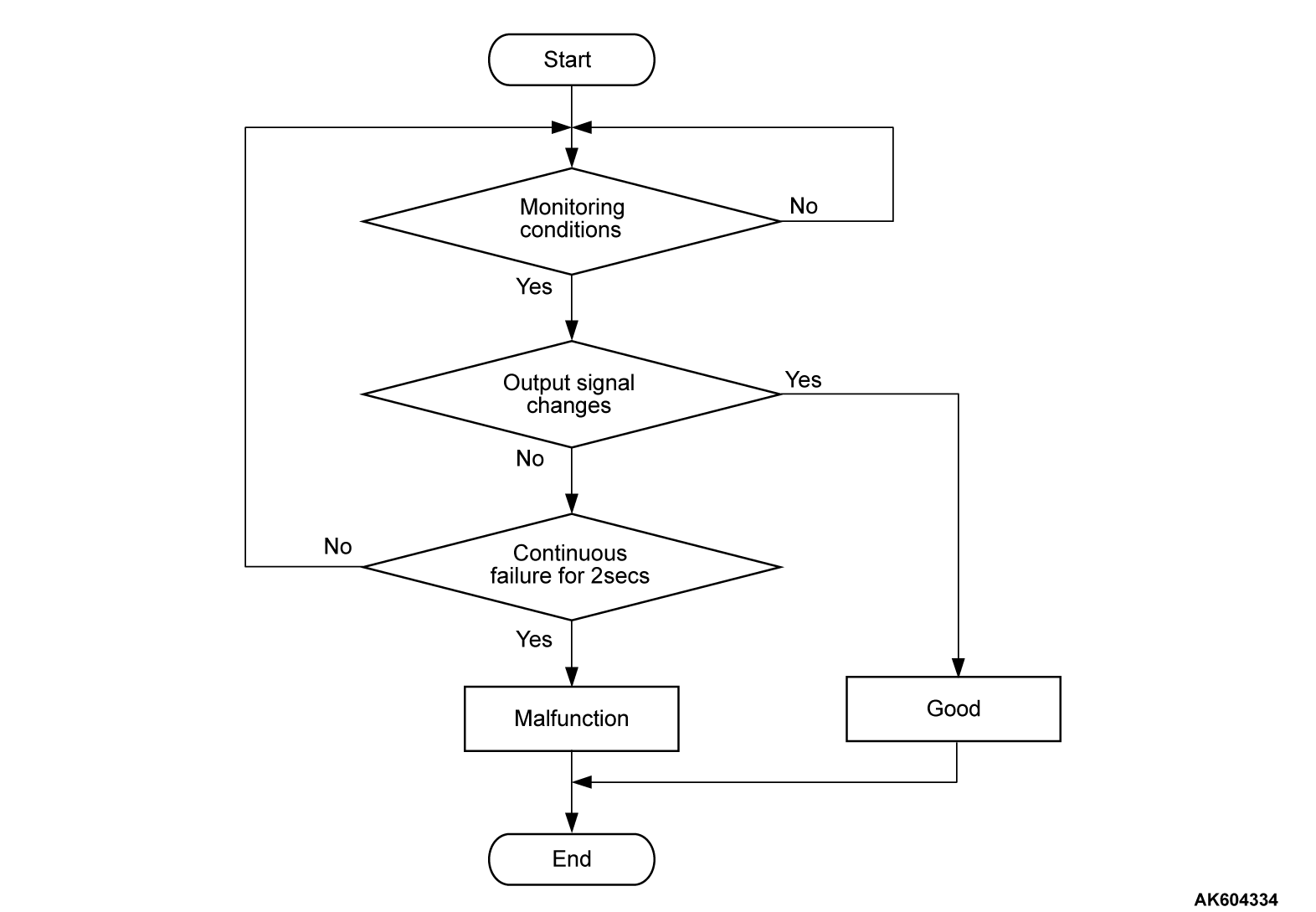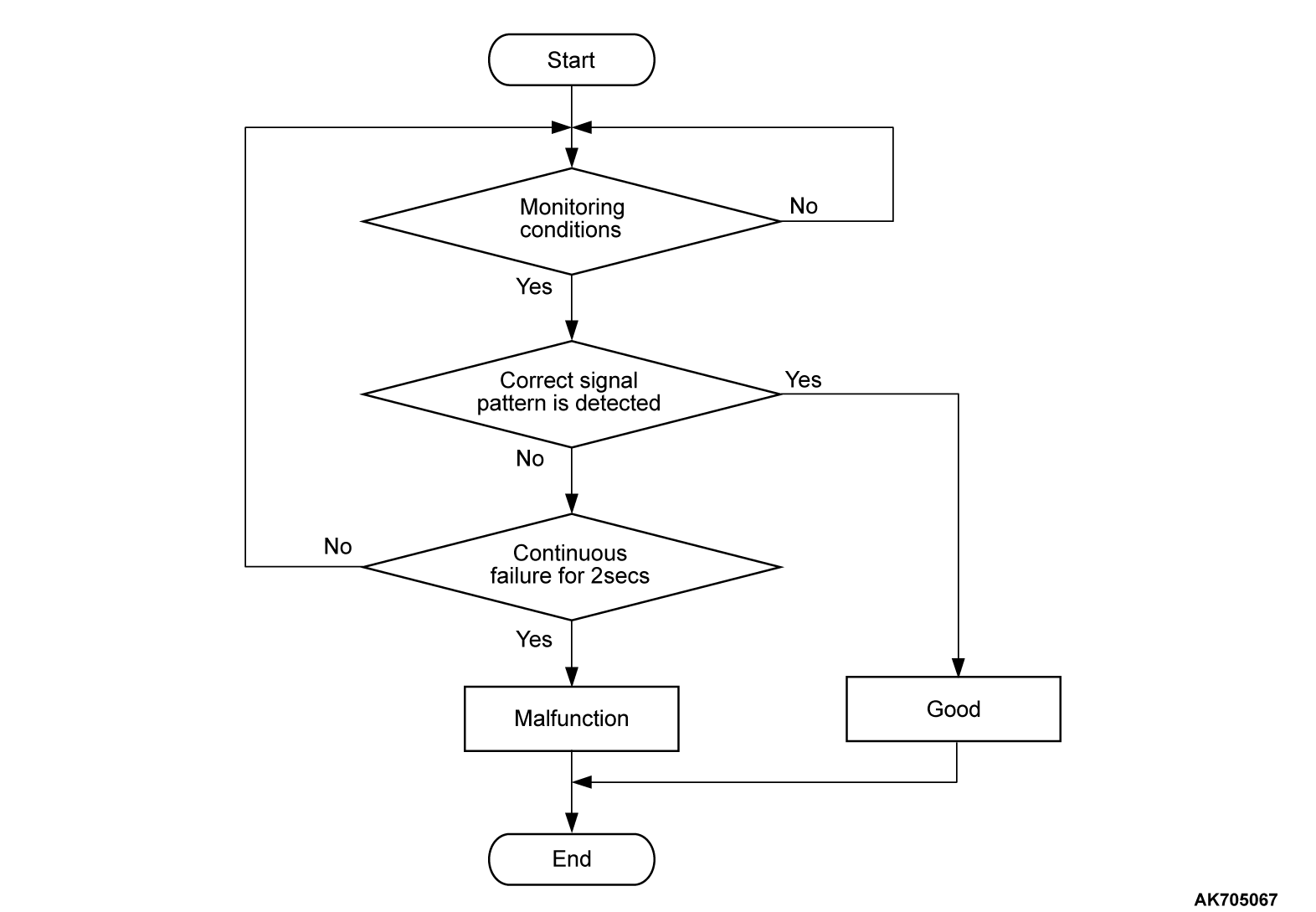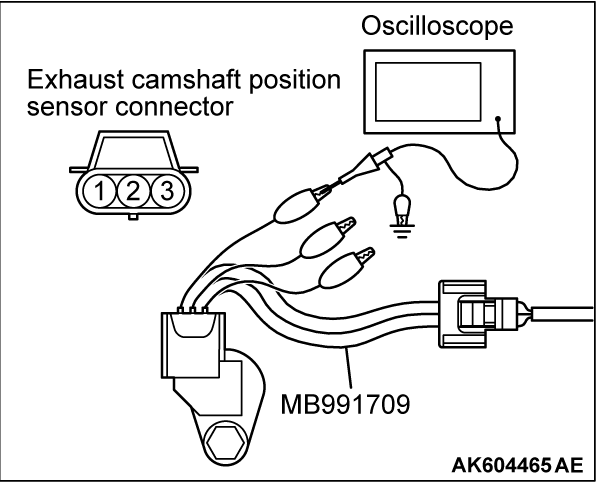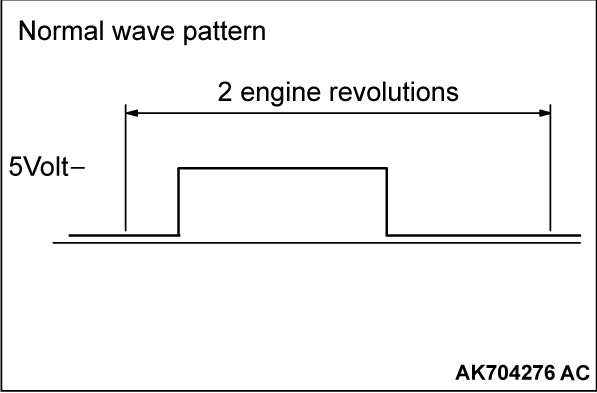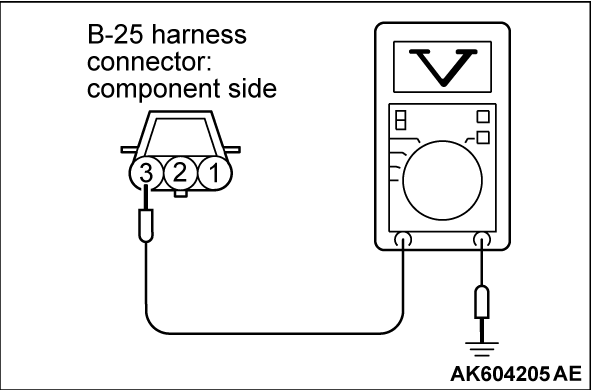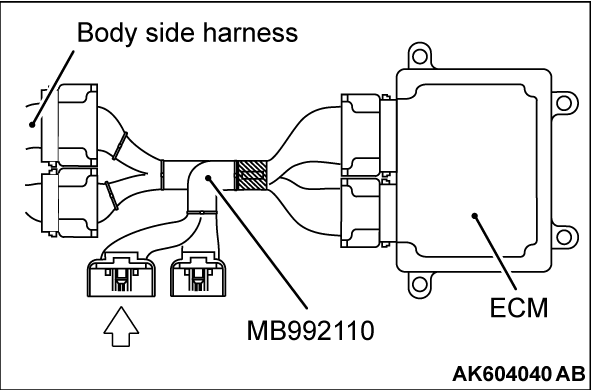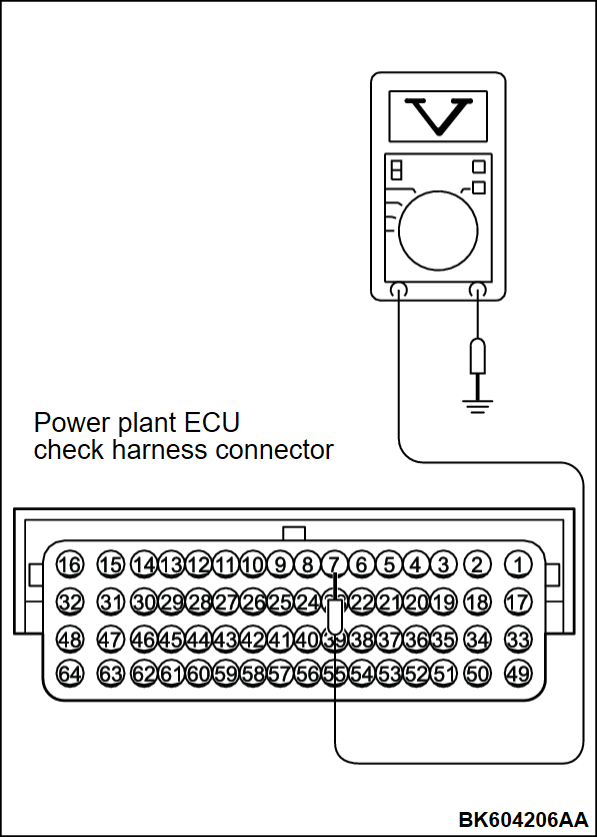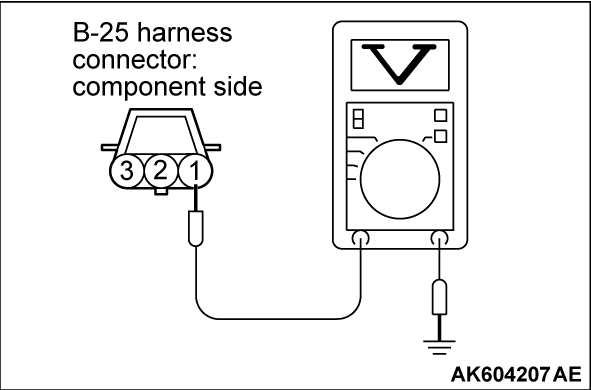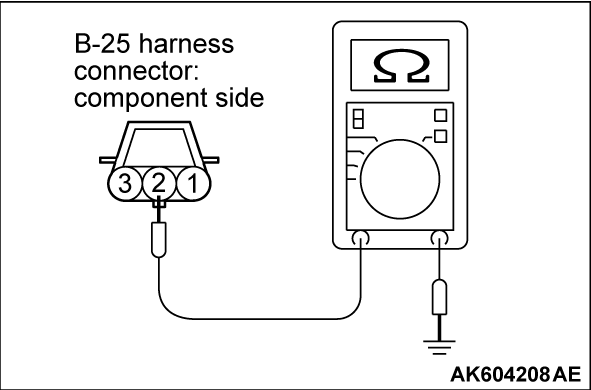DTC P0365: Exhaust Camshaft Position Sensor Circuit
CIRCUIT OPERATION
- The exhaust camshaft position sensor power is supplied from the ECM (terminal No. 9).
- Terminal No. 2 of the exhaust camshaft position sensor is grounded with ECM (terminal No. 23).
- A 5-volt voltage is applied on the exhaust camshaft position sensor output terminal (terminal No. 3) from the ECM (terminal No. 7). The exhaust camshaft position sensor generates a pulse signal when the output terminal is opened and grounded.
TECHNICAL DESCRIPTION
- The exhaust camshaft position sensor detects the position of the exhaust camshaft and inputs the pulse signal to the ECM.
- In response to the exhaust camshaft position sensor signal, the ECM controls variable valve timing (V.V.T.).
DESCRIPTIONS OF MONITOR METHODS
- Exhaust camshaft position sensor signal does not change.
- Exhaust camshaft position sensor signal is not normal pattern.
MONITOR EXECUTION
- Continuous
MONITOR EXECUTION CONDITIONS (Other monitor and Sensor)
Other Monitor (There is no temporary DTC set in memory for the item monitored below)
- Not applicable
Sensor (The sensor below is determined to be normal)
- Not applicable
DTC SET CONDITIONS <Circuit continuity>
Check Condition
- Engine is being cranked.
or
- Engine speed is more than 500 r/min excluding during cranking.
Judgment Criterion
- Exhaust camshaft position sensor output voltage does not change (no pulse signal is input) for 2 seconds.
DTC SET CONDITIONS <Range/Performance problem - alignment>
Check Condition
- Engine is being cranked.
or
- Engine speed is more than 500 r/min excluding during cranking.
Judgment Criterion
- Normal signal pattern is not inputted from the crankshaft position sensor signal and exhaust camshaft position sensor signal for 2 seconds.
FAIL-SAFE AND BACKUP FUNCTION
- Does not control variable valve timing (V.V.T.).
TROUBLESHOOTING HINTS (The most likely causes for this code to be set are:)
- Exhaust camshaft position sensor failed.
- Open or shorted exhaust camshaft position sensor circuit, harness damage or connector damage.
- Exhaust camshaft failed.
- ECM failed.
DIAGNOSIS
Required Special Tools:
- MB991958: Scan Tool (M.U.T.-III Sub Assembly)
- MB991824: V.C.I.
- MB991827: USB Cable
- MB991910: Main Harness A
- MB991709: Test Harness
- MB992110: Power Plant ECU Check Harness
STEP 1. Using the oscilloscope, check the exhaust camshaft position sensor.
(1) Disconnect the exhaust camshaft position sensor connector B-25, and connect test harness special tool MB991709 between the separated connectors. (All terminals should be connected.)
(2) Connect the oscilloscope probe to the exhaust camshaft position sensor side connector terminal No. 3.
| note | When checking with the ECM side connector, disconnect all ECM connectors. Connect the power plant ECU check harness special tool MB992110 between the separated connectors. Then connect the oscilloscope probe to the check harness connector terminal No. 7. |
(3) Start the engine and run at idle.
(4) Check the wave pattern.
- The wave pattern should show a pattern similar to the illustration.
(5) Turn the ignition switch to the "LOCK" (OFF) position.
Is the wave pattern normal?
STEP 2. Check harness connector B-25 at exhaust camshaft position sensor and harness connector B-26 at ECM for damage.
Are the harness connectors in good condition?
STEP 3. Check harness connector B-25 at exhaust camshaft position sensor for damage.
Is the harness connector in good condition?
STEP 4. Measure the sensor supply voltage at exhaust camshaft position sensor harness side connector B-25.
(1) Disconnect the connector B-25 and measure at the harness side.
(2) Turn the ignition switch to the "ON" position.
(3) Measure the voltage between terminal No. 3 and ground.
- Voltage should be between 4.9 and 5.1 volts.
(4) Turn the ignition switch to the "LOCK" (OFF) position.
Is the measured voltage between 4.9 and 5.1 volts?
STEP 5. Check harness connector B-26 at ECM for damage.
Is the harness connector in good condition?
STEP 6. Measure the sensor supply voltage at ECM connector B-26 by using power plant ECU check harness special tool MB992110.
(1) Disconnect all ECM connectors. Connect the power plant ECU check harness special tool MB992110 between the separated connectors.
(2) Disconnect the exhaust camshaft position sensor connector B-25.
(3) Turn the ignition switch to the "ON" position.
(4) Measure the voltage between terminal No. 7 and ground.
- Voltage should be between 4.9 and 5.1 volts.
(5) Turn the ignition switch to the "LOCK" (OFF) position.
Is the measured voltage between 4.9 and 5.1 volts?
STEP 7. Check for short circuit to ground between exhaust camshaft position sensor connector B-25 (terminal No. 3) and ECM connector B-26 (terminal No. 7).
STEP 8. Measure the sensor supply voltage at exhaust camshaft position sensor harness side connector B-25.
(1) Disconnect the connector B-25 and measure at the harness side.
(2) Turn the ignition switch to the "ON" position.
(3) Measure the voltage between terminal No. 1 and ground.
- Voltage should be battery positive voltage.
(4) Turn the ignition switch to the "LOCK" (OFF) position.
Is battery positive voltage (approximately 12 volts) present?
STEP 9. Check harness connector B-26 at ECM for damage.
Is the harness connector in good condition?
STEP 10. Check for open circuit and short circuit to ground between exhaust camshaft position sensor connector B-25 (terminal No. 1) and ECM connector B-26 (terminal No. 9).
STEP 11. Check the continuity at exhaust camshaft position sensor harness side connector B-25.
(1) Disconnect the connector B-25 and measure at the harness side.
(2) Check for the continuity between terminal No. 2 and ground.
- Continuity (2 ohms or less).
Does continuity exist?
STEP 12. Check harness connector B-26 at ECM for damage.
Is the harness connector in good condition?
STEP 13. Check for open circuit and harness damage between exhaust camshaft position sensor connector B-25 (terminal No. 2) and ECM connector B-26 (terminal No. 23).
STEP 14. Check harness connector B-26 at ECM for damage.
Is the harness connector in good condition?
STEP 15. Check for harness damage between ECM connector B-26 (terminal No. 9) and exhaust camshaft position sensor connector B-25 (terminal No. 1).
STEP 16. Check for harness damage between exhaust camshaft position sensor connector B-25 (terminal No. 3) and ECM connector B-26 (terminal No. 7).
STEP 17. Check the exhaust camshaft position sensing portion.
Is the exhaust camshaft position sensing portion in good condition?
![[Previous]](../../../buttons/fprev.png)
![[Next]](../../../buttons/fnext.png)
